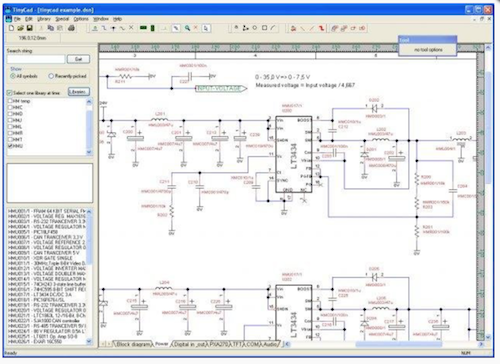

Open Source HardwareĬircuitMaker requires a free account to represent its users in the community. The entire PCB can also be exported as a 3D STEP model for further use in mechanical 3D CAD software. Production files can be exported directly, although an external Gerber viewer must be used to check the exports. Some advanced features, including differential pair routing and polygon pour management, are also available. CircuitMaker supports design rule configuration and real time design rule checking. PCB footprints may have simple 3D models or complex STEP models attached to them, enabling real time 3D rendering of the PCB during development. Transfer of schematics to a PCB is a straightforward process in CircuitMaker since PCB footprints are automatically attached to any component on the schematic that was picked from the Octopart library. The continuously growing part database eliminates the need for a custom schematic symbol or footprint design for common parts, increasing user-friendliness for beginners.Ĭoncurrency editing was added in version 1.3 Users can build missing schematic symbols and commit them to the server, called the Community Vault, making them available for other users.

CircuitMaker supports integration with the Octopart search engine and allows drag and drop placement of components from the Octopart search results if schematic models are attached to them. All schematics are uploaded to the Altium server and can be viewed by anyone with a CircuitMaker account, stimulating design re-use. The schematic editor includes basic component placement and circuit design as well as advanced multi-channel design and hierarchical schematics. FeaturesĬircuitMaker implements schematic capture and PCB design using the same engine as Altium Designer, providing an almost identical user experience. In recent years, several initiatives have attempted to fill this void, leading to Altium's release of a simplified and easy-to-use version of their professional EDA software package, Altium Designer, targeted at less complex circuit board projects. This resulted in high piracy rates for professional software packages, or users sticking to outdated software for their circuit board needs. The leading EDA software vendors traditionally lack free versions, and professional licenses are typically unaffordable for amateurs. Open source hardware and easy-to-use development boards such as the Arduino and the Raspberry Pi have encouraged community interest in electronics, particularly in fablabs, hackerspaces and makerspaces.


 0 kommentar(er)
0 kommentar(er)
